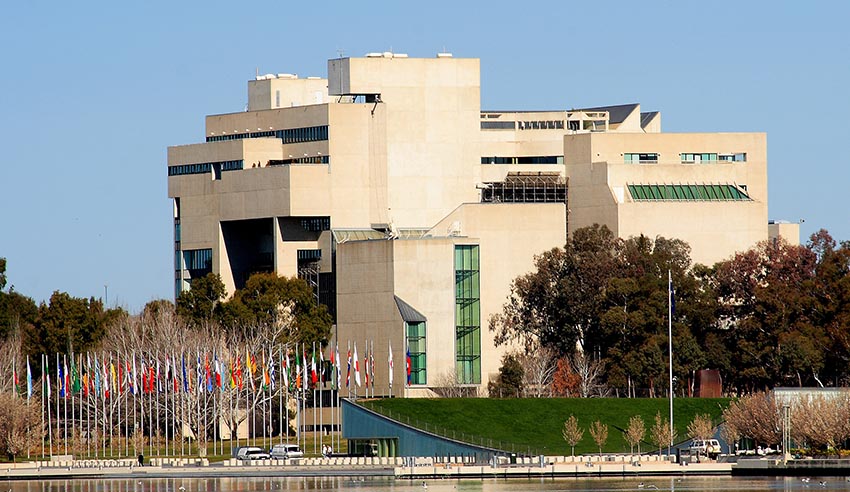The controversial relationship between a barrister and a trial judge – which is now the subject of an Australian Law Reform Commission inquiry – has returned to the High Court to determine whether the “numerous” text messages, phone calls, and in-person meetings during key periods of the case warranted an appeal.

Earlier this year, a Perth real estate agent embroiled in a 15-year family law battle brought an appeal to the High Court after “gossip” in the Western Australian legal profession revealed a “personal relationship” between the trial judge and the opposing side’s barrister, Gillian Anderson, had been playing out in the background.
Mid-last year, Justices Steven Strickland and Judy Ryan, who held the majority, dismissed the requests for a retrial. In judgement, they found that it would be unlikely for a reasonable person to fear that the relationship and the contact between Ms Anderson and Justice Walters would cause them to think he had been biased.
Returning to the High Court this week, counsel for the husband, Steven Penglis SC, submitted that there was an “extraordinarily concerning amount of contact” between Justice Walters and Ms Anderson that required disclosure. Failing their honesty, Mr Penglis submitted that the communication warranted an appeal.
Mr Penglis added that it was “bad enough” for the relationship not to be disclosed, but Justice Walters and Ms Anderson had a number of opportunities to do so during the matter. This was particularly evident during a recusal hearing, he said, in which both the trial judge and the barrister kept quiet about information that could assist.
“The conduct here is the communication. That should not have happened. It is made more egregious by the fact that, having happened, there was no disclosure of it. That was made even more egregious by the fact that we had an application to disqualify this judge for ostensible bias and, again, the judge sat there, counsel for the wife sat there, knowing relevant information, but kept quiet,” Mr Penglis told the court.
Mr Penglis took issue with most of the majority’s rulings against the retrial, including their finding that a reasonable person outside of the proceedings would not consider that Justice Walters and Ms Andersons’ lack of disclosure was “sinister”.
“Forget the word ‘sinister’. That is a red herring. It does not have to be sinister, but the notion that a hypothetical lay observer would simply say, ‘he will make mistakes, I am not going to be touched by it’, is of great concern and, we submit, wrong.”
He also took issue with the majority’s finding that while “at first blush”, a hypothetical lay observer would be concerned about the private communications, “the totality of the circumstances would be sufficient to dispel concerns”. Mr Penglis said this finding was “plain wrong” and the fair-minded observer would be “horrified”.
He added it was also wrong for the majority to rule that Justice Walters did not disclose his communication with Ms Anderson because there were no inquiries.
“That is an interesting proposition. It is somehow putting the onus on someone who does not know of the relationship and a duty to make an inquiry of something they do not know. Of course, the obligation is on the part of the judge to make the disclosure without an inquiry being made,” Mr Penglis submitted to the court.
Counsel for the other side submitted that while he personally did not wish to be seen as condoning the behaviour between Justice Walters and Ms Anderson, there was no likelihood of an observer of the proceedings to be concerned about bias.
“I do say that a fair-minded observer would take it into account as being anything more than just [that] it is a factor which explains why there are likely to be friendships and relationships as between bar and bench. It is such a small pool of people that it is inevitable that there will be those sorts of friendships,” he said.
The relationship between Justice Walters and Ms Anderson has inspired an inquiry by the Australian Law Reform Commission into judicial impartiality. The commission has slowly been releasing submissions that detail methods the major courts could apply to ensure that judicial bias does not impact any future hearings.
This story is continuing – more to come.
